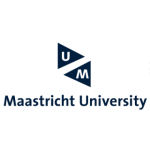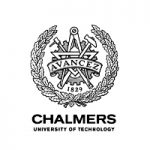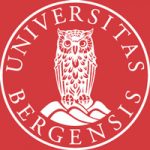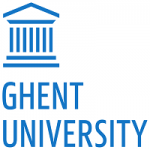项目介绍
The increasing automation of agriculture is often framed as an inevitable and necessary response to global challenges such as labour shortages, rising costs, and sustainability imperatives. Autonomous greenhouses, AI-driven farming, and robotics promise efficiency, precision, and sustainability—but what will this transition look like, in practice? This PhD project critically examines the potential emergence of ethical and societal frictions, as agricultural automation reshapes knowledge, labour, and governance structures.
Job Description
This project will explore fundamental questions raised by agricultural automation as a politically and societally embedded phenomenon. For example, what does it mean when decisions about cultivation—once made by farmers—are increasingly determined by algorithms and robotic systems? How do these technologies structure new forms of dependence, control, and opacity, and what kinds of epistemic assumptions about farming, efficiency, and nature underpin their design? Who designs these systems, and whose expertise is legitimized or erased in the process? What knowledge traditions—sensor data, machine learning models, agronomic science—are prioritized over others, such as local, experiential, or traditional agricultural knowledge?
Automation does not just transform work; it reconfigures entire agro-technical imaginaries, shaping new relationships between humans, technology, and the environment. By adopting a critical, interdisciplinary approach, the aim of this PhD project is to open up new ways of thinking about automation—beyond progress-driven narratives—to address the structural, normative, and ontological shifts that automated agriculture entails.
This project will be embedded within the Faculty of Arts and Social Sciences (FASoS, Maastricht) as well as at the Brightlands Smart Autonomous Sustainable Systems research facility (Venlo), a site where cutting-edge automation is being developed and tested. The facility will not only serve as a case study but as an active field of engagement, allowing the PhD researcher to observe and interact with engineers, farmers, policymakers, and other stakeholders. The research will involve a combination of theoretical inquiry and empirical investigation, potentially including ethnographic fieldwork, interviews, discourse analysis, and policy studies.
At FASoS the position is embedded in the Maastricht University Science and Technology Studies Research Group (MUSTS). There you will be supervised by Professor Darian Meacham and Dr. Dani Shanley. You will be provided with training on general academic skills in the faculty’s Graduate School. Further training is available through the Dutch national research school in science and technology studies (STS) and/or philosophy. As part of this project, you will also work together with other PhD students working on topics related to the philosophy of technology.
Tasks
- Conduct empirical and theoretical research on the socio-technical entanglements of agricultural automation.
- Investigate how automation reconfigures knowledge, labour, and agency within agrifood systems.
- Analyse legal and regulatory frameworks for autonomous farming and assess how they reflect—or obscure—broader ethical concerns.
- Engage with engineers, farmers, policymakers, and technology developers to trace the frictions and negotiations shaping automation in practice.
- Contribute to philosophy of technology, science and technology studies (STS), and legal scholarship on automation, control, and governance.
The main task will be to complete the PhD in the allotted time.
The successful candidate is also expected to take part in the main activities of the department and the research group (MUSTS). These include:
- Publish results at top-tier (international) conferences and in international journals;
- Assist with educational tasks (e.g., teach at undergraduate level, supervise students and internships);
- Assist with the organisation of workshops, conferences and meetings;
- Participate in conferences, workshops and internal meetings and seminars.
Requirements
- An MA or Research Master degree, in one or more of the following fields: philosophy of technology, science and technology studies (STS), political philosophy, or a related field;
- A strong critical perspective on emerging technologies and their societal implications;
- Experience with qualitative research methods (e.g., ethnography, discourse analysis, policy analysis);
- An interest in automation, AI ethics, and socio-technical imaginaries, particularly in the context of agriculture;
- Excellent analytical and writing skills, with the ability to engage across disciplines;
- Fluency in English (Dutch proficiency is an advantage but not required).
What we offer
As PhD position: Ethical and Societal Challenges of Agricultural Automation at Faculty of Arts and Social Sciences, you will be employed by the most international university in the Netherlands, located in the beautiful city of Maastricht. In addition, we offer you:
- Good employment conditions. The position is graded in scale P according to UFO profile PhD, with corresponding salary based on experience ranging from €2901,00 and €3707,00 gross per month (based on a full-time employment of 38 hours per week). In addition to the monthly salary, an 8.0% holiday allowance and an 8.3% year-end bonus apply.
- An employment contract for a period of 12 months with a scope of 1,0 FTE. Upon a positive evaluation, an extension of 3 years will follow.
- At Maastricht University, the well-being of our employees is of utmost importance, we offer flexible working hours and the possibility to work partly from home if the nature of your position allows it. You will receive a monthly commuting and internet allowance for this. If you work full-time, you will be entitled to 29 vacation days and 4 additional public holidays per year, namely carnival Monday, carnival Tuesday, Good Friday, and Liberation Day. If you choose to accumulate compensation hours, an additional 12 days will be added. Furthermore, you can personalize your employment conditions through a collective labor agreement (CAO) choice model.
- As Maastricht University, we offer various other excellent secondary employment conditions. These include a good pension scheme with the ABP and the opportunity for UM employees to participate in company fitness and make use of the extensive sports facilities that we also offer to our students.
- Last but certainly not least, we provide the space and facilities for your personal and professional development. We facilitate this by offering a wide range of training programs and supporting various well-established initiatives such as ‘acknowledge and appreciate’.
The terms of employment at Maastricht University are largely set out in the collective labor agreement of Dutch Universities. In addition, local provisions specific to UM apply. For more information, click here.
Maastricht University
Why work at Maastricht University?
At Maastricht University (UM), everything revolves around the future. The future of our students, as we work to equip them with a solid, broad-based foundation for the rest of their lives. And the future of society, as we seek solutions through our research to issues from all around the world. Our six faculties combined provide a comprehensive package of study programmes and research.
In our teaching, we use the Problem-Based Learning (PBL) method. Students work in small groups, looking for solutions to problems themselves. By discussing issues and working together to draw conclusions, formulate answers and present them to their peers, students develop essential skills for their future careers.
With over 22,300 students and more than 5,000 employees from all over the world, UM is home to a vibrant and inspiring international community.
Are you drawn to an international setting focused on education, science and scholarship? Are you keen to contribute however your skills and qualities allow? Our door is open to you! As a young European university, we value your talent and look forward to creating the future together.
Click here for more information about UM.
Faculty of Arts and Social Sciences
The Faculty of Arts and Social Sciences FASoS is a close-knit community of approximately 250 staff members and 2100 students. During breaks and before meetings, you can often find us at our favourite local coffee spot Bandito Espresso.
Communication lines within our faculty are short and colleagues are always ready to assist each other. FASoS consists of a highly international student population and a significant part of our staff comes from abroad. Our faculty offers four bachelor programs, eight masters programs and two research master programs that are all characterized by their interdisciplinary approach.
Our research institute studies societies and cultures as they have developed in the modern and contemporary periods. We adopt a radically interdisciplinary approach, analysing the interconnections between Europeanization, globalization, scientific and technological advancement, political change, and cultural innovation.
In addition to teaching and research, our colleagues enjoy expressing themselves creatively. They create podcasts, write poetry as well as fiction.
Working at FASoS means working in a challenging yet informal environment. We believe in crafting your own career path and are always ready to help you in making the most of your job. For more information about FASoS, you can visit our website FASoS
Department
The department of Philosophy participates in all of the faculty’s courses. The curriculum’s philosophical input is mainly thematically oriented: teaching and research is intended to contribute to conceptual clarification and normative reflection on technological, social, and cultural problems.
The philosophical expertise of the department focuses on three specialist areas or points of special interest relevant to the various Bachelor and Master programmes:
- philosophy of technology, particularly the ethics and politics of new and emerging technologies
- the philosophy of art and culture, with an important focus on artistic research
- political and social philosophy, with a special interest in political culture
Curious?
Are you interested in this exciting position but still have questions? Feel free to contact Dr Dani Shanley via danielle.shanley@maastrichtuniversity.nl for more information.
Applying?
Or are you already convinced and ready to become our new PhD position: Ethical and Societal Challenges of Agricultural Automation? Apply now, no later than May 4, for this position. Please upload:
- your CV
- motivation letter (stating your research interests, the reasons why the PhD project matches your interests and knowledge; what your contribution would be and what practical impact would it have)
- copy of your MA Thesis
- contact information of 2 referees
The first interviews preferably take place on May 27, 2025.
The vacancy is open for internal and external candidates. In case of equal qualifications, internal candidates will be prioritized.
Maastricht University is committed to promoting and nurturing a diverse and inclusive community. We believe that diversity in our staff and student population contributes to the quality of research and education at UM, and strive to enable this through inclusive policies and innovative projects led by teams of staff and students. We encourage you to apply for this position.
联系方式
电话: +31 43 388 2222相关项目推荐
KD博士实时收录全球顶尖院校的博士项目,总有一个项目等着你!






